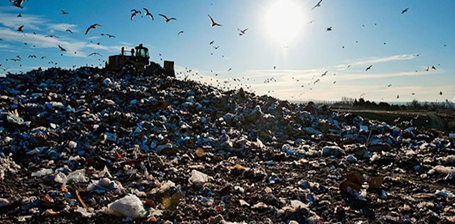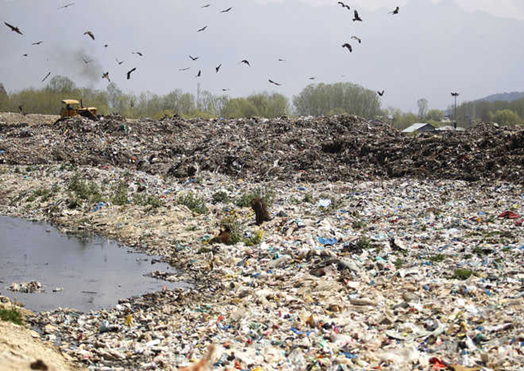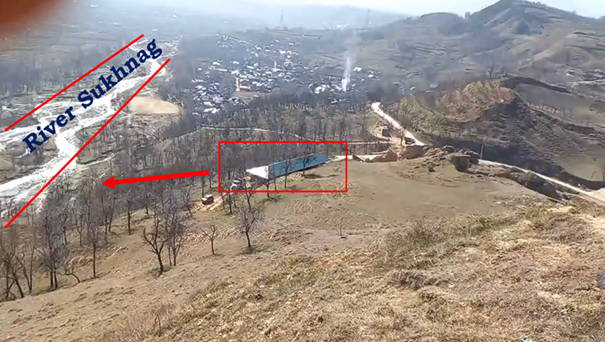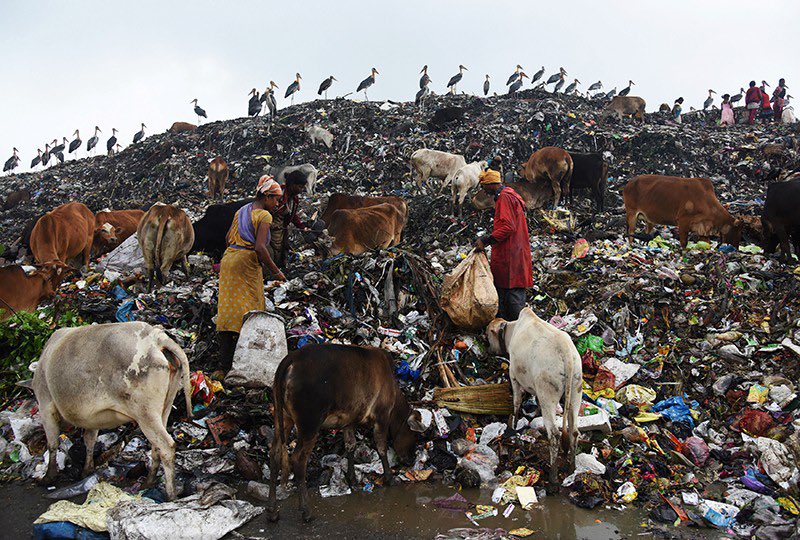Solid waste generation in Kashmir is a significant concern due to various reasons, including the region’s growing population and changing lifestyle patterns. According to a study conducted by the Jammu and Kashmir Pollution Control Board in 2019, the average per capita solid waste generation in the region was approximately 0.5 kg per day. It was estimated approximately that around 1500 tons of solid waste are produced every day in the urban areas of the region.
The main sources of solid waste in Kashmir include households, commercial establishments, and construction activities. The waste generated includes organic waste, plastics, paper, and other non-biodegradable materials. In rural areas of Kashmir, solid waste generation is lower than in urban areas due to the lower population density and traditional waste disposal practices, such as using cow dung for cooking fuel and composting organic waste.
However, despite the relatively lower waste generation in rural areas, improper disposal practices, such as open dumping and burning of waste, still pose a significant threat to the environment and public health.

The inadequate management of solid waste in Kashmir and the overflowing landfills are posing significant environmental and public health concerns. The improper disposal of solid waste in open areas, including water bodies, and the lack of proper waste management infrastructure have led to the contamination of soil, air, and water resources, leading to various health hazards.
SOLID WASTE MISMANAGEMENT: City’s first energy plant in limbohttps://t.co/2hCiWvzBiH pic.twitter.com/Iz4kcsJgjF
— Greater Kashmir (@GreaterKashmir) June 22, 2018
Moreover, the overflowing landfills are causing problems like air and water pollution, the spread of diseases, and a breeding ground for rodents and insects. The situation is worsened by the fact that the region’s population is growing, and there is an increasing amount of solid waste being generated daily.

The Achan dumping site near Soura Kashmir is already full, and this has exacerbated the solid waste management issues in the region. The site was opened in 2008 and was supposed to have a lifespan of 20 years. However, due to the growing population and increasing waste generation, the site reached its capacity within just 12 years.
The situation at Achan is indicative of the larger solid waste management crisis in Kashmir, and there is an urgent need to develop sustainable waste management solutions. This includes the development of new landfill sites, waste-to-energy plants, composting facilities, and recycling centers, while considering land features, and engineered structures in consideration with environmental experts to avoid any contamination and harm to the environment and human health.
The development of a solid waste treatment facility in the mountainous region of Beerwah, as recently reported by journalist Riffat Abdullah, raises valid concerns about the potential risk of environmental pollution and harm to aquatic life. It is important to recognize that mountainous areas present unique challenges in waste management due to not only the risk of an overflow of pollutants into nearby water bodies like river sukhnag that flows very near the developing waste management facility, especially during the snowing and rainy seasons but also will be potential for soil and groundwater contamination due to leachate and which will be very hard to remediate and reversed.

The issue of waste management in Kashmir demands immediate attention and action, and we the residents must take concrete steps to reduce waste generation. One way to achieve this is through the adoption of waste reduction strategies in our daily life activities. Additionally, it is vital and essential for the government to invest in the sustainable development of effective waste management facilities in Kashmir to address the growing waste challenge.
To ensure environmental protection and the health and safety of residents, waste management facilities should be located away from residential areas and fragile ecosystems including beautiful mountain/hilly ecosystems and pristine water bodies. As such, waste management facilities should not be developed in these areas to prevent and avert negative significant impact on the environment.
#Industrial estate #Zainakote turning into #garbage dumping site https://t.co/Sm9FkHFz7X #News #Kashmir
— Kashmir Reader (@Kashmir_Reader) March 3, 2016
By implementing these measures, we can effectively manage the waste generated in Kashmir and maintain the natural beauty of the region. It is our responsibility to act now and address this critical issue to safeguard the health and well-being of our environment and communities and preserve the beauty of Kashmir for generations to come.
Therefore, it is essential to develop sustainable and comprehensive waste management solutions like as developed by Beeah Waste Management in Sharjah-UAE, which will include proper waste segregation, collection, transportation, treatment, and disposal. It is also necessary to create awareness among the general public about the importance of proper waste management and the need to reduce waste generation. This will not only help in mitigating the environmental and public health concerns but also ensure a cleaner and sustainable future for Kashmir.
